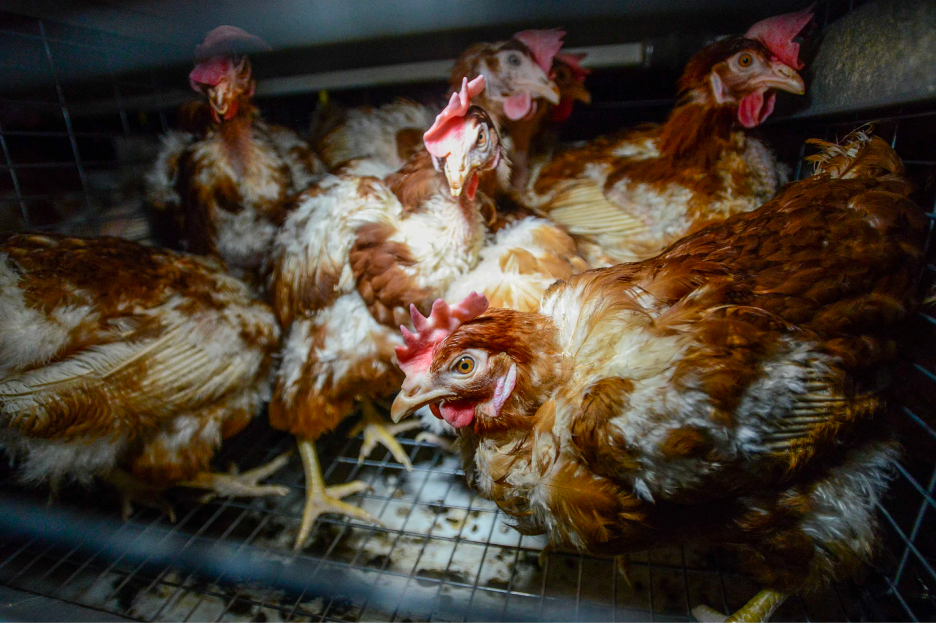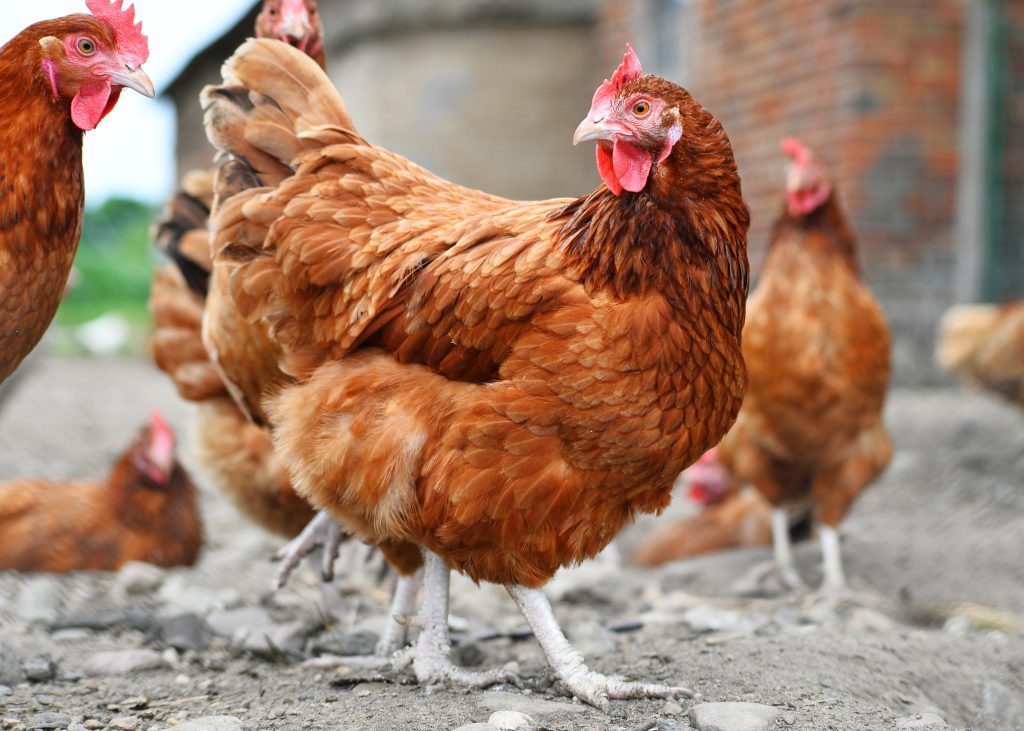The vast majority of the world’s roughly 8 billion egg-laying hens are permanently confined to battery cages.
Caged hens are some of the most mistreated animals in the world. Battery cages confine four or more hens in a cage the size of a microwave oven. This deprives them of their ability to spread their wings, forage, build nests, and perch. This deprivation can lead to maladaptive behaviors, like pecking flock-mates to the point of serious injury and sometimes death. The Welfare Footprint Project estimates that the transition from conventional cages to cage-free aviaries, which allow hens to move around and exhibit natural behaviors, reduces the time hens spend in pain by over 50%.
-

Jo-Anne McArthur / We Animals
Farm animal advocates are working with companies to shift their egg procurement to higher-welfare farming systems, and tracking companies’ progress toward meeting their cage-free commitments.
Over 2,700 companies have committed to go 100% cage-free in their supply chains. They include almost all of the largest American and European retailers, fast food chains, and food service companies — and an increasing number of major Asia-Pacific companies. We estimate that these pledges, if fully implemented, will spare over 500 million hens every year from battery cages.
Progress has been rapid: 250 million more hens are already cage-free in Europe and the U.S. today than in 2013, and 92% of corporate cage-free pledges with deadlines through 2024 have been met.
These results are in large part thanks to the advocacy of Coefficient grantees like The Humane League, Mercy for Animals, and Compassion in World Farming, which have educated companies on the suffering inflicted by battery cages and helped them transition to more humane alternatives.
-

iStock
The success of corporate campaigns might also pave the way for legislative action. As more companies transition to cage-free, consumers and producers may stop defending the use of battery cages and support legislation that requires producers to use cage-free aviaries.